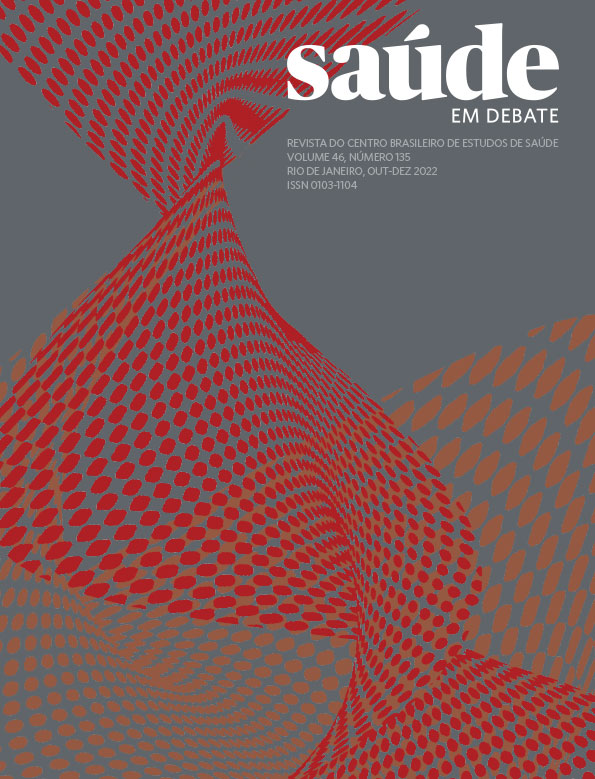Vol. 46 No. 135 out-dez (2022): Saúde em Debate

Editorial of the last regular issue of ‘Saúde em Debate’ of 2022, written by the journal’s scientific editors: ‘Lula for President: the heritage and the challenges for the democratic field’ – For the past six years, democracy in Brazil has been confronted with the fascism that has settled here along with serious political, economic, health, cultural, and social crises. Until September 2022, the COVID-19 pandemic had killed 685,677 people, proportionately one of the highest mortality rates on the planet (14th place), and the second in the Americas, with 3,214 million inhabitants, lagging behind only Peru. [...] In the context of a society divided and flooded by hatred, Lula’s great task will be to rebuild the country, democracy, unity, and hope, while implementing social policies that reduce the enormous inherited inequalities, particularly the hunger that today reaches 33 million Brazilians. There is great expectation regarding the strengthening of the health sector and the Unified Health System (SUS), which gained visibility and certain popular appreciation in the pandemic, but which, at the same time, is a sector in strong dispute with the private market. The invitation to the leaders of the National Health Council and the Brazilian Center for Health Studies (CEBES) to compose the government’s Transition Commission in the field of health signals the role that organizations and entities of collective health and the Health Reform Movement (MRS) can play in the future government as actors with the capacity and power to influence the direction of health”.
Topics covered: quality of health information on the Internet; Violence, mental suffering and invisibilities in the favelas of Rio de Janeiro; Humanization of birth and women’s empowerment in Quebec and Chile; Hospital care during childbirth; Judicialization of health as a sustainability strategy for the SUS; Prevention and control of oral câncer in Rio de Janeiro; Dental services in Paraná during the Covid-19 pandemic; The Caps and Winnicottian theory; Work and practices of nursing in Primary Health Care in the state of Paraíba – Brazil; Diagnosis of HIV/AIDS represent after four decades of epidemic; Health care practices from the perspective of People Living With HIV/AIDS; case study on the living and care of women with HIV; Collective health and social psychology: an interdisciplinary path for meta-formation in graduate studies; Physical education and training in public health; Continuing Health Education: an interprofessional and affective policy; Quality of care and patient safety; Applicability of the Three Delays Model in the context of maternal mortality; Big Data and artificial intelligence for translational research in COVID-19; Planning and Sizing of the Health Workforce in Brazil; Pedagogical experiences for the construction of interdisciplinary in public health; Construction of the Municipal Health Plan from the district perspective.

















